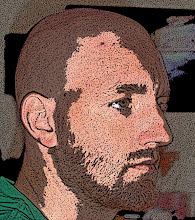"An idea, like a ghost, must be spoken to a little before it will explain itself." - Charles Dickens
The power of strange and scary stories are epitomized in Japan's 百物語 (ひゃくものがとり) / 100 Stories. During the 江戸時代Edo period (1603-1868), Japanese people partook in this parlor game by lighting 100 candles. Participants took turns sharing scary stories and after each one extinguish one of the candles. As the night progressed, the room became darker. Finally, when the last candle was put out, it was believed that a paranormal event would occur or the room would be visited by a 溶解(yokai), a strange monster from folklore and pop culture.
 |
| Candle-Lit Ghost Stories Copyright Kay Design Room |
Truth be told, this ancient custom is not commonly practiced today. In fact, most Japanese people won't have a clue with what you're talking about or won't be able to offer any additional beyond what you already know. Consequently, while my 日本語/Japanese is lacking, my love for yokai (strange monster) is helping me to educate locals. While my job description states I am to bring over my own culture, I'm also reminding teachers and students of their own.
For those interested in a highly-engrossing academic analysis of Japanese monster culture, I recommend Michael Dylan Hoffer's "Pandemonium and Parade: Japanese Monsters and the Culture of Yokai." But those looking for an easy way out, just venture over to wikipedia for the incomplete story.
Sources:
Foster, Michael Dylan. Pandemonium and Parade: Japanese Monsters and the Culture of Yokai. University of California Press: 2009





No comments:
Post a Comment